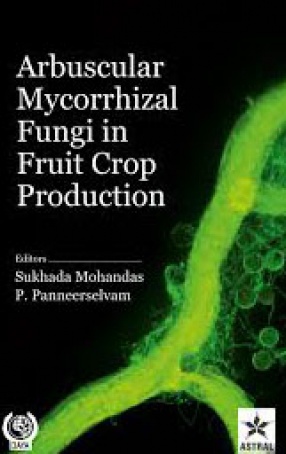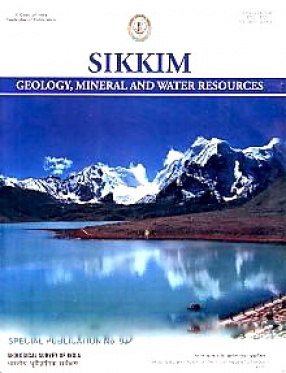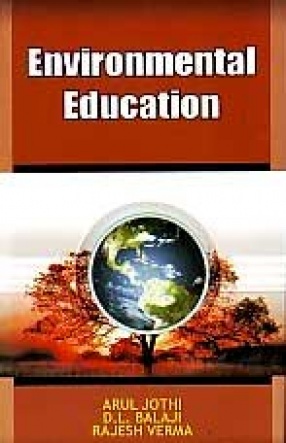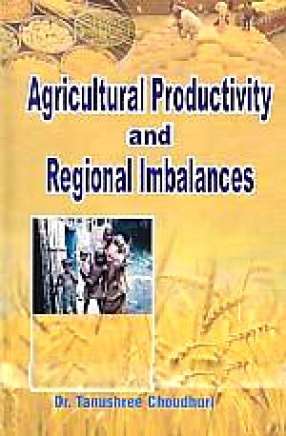Utilization of arbuscular mycorrhizal fungi (AMF) in fruit crop improvement has been worked out extensively and found to be highly beneficial. In most of the fruit crops which are propagated through nursery AMF have been found to improve seedling production. India is the second largest producer of fruit crops in the world and hence there is a need to educate the grower on utilization of mycorrhizal technology. The book provides an insight into the usage of mycorrhizal technology in different fruit crops in the world, its benefits in nutrient cycling/management and in biotic and abiotic stress management and the prospects of its application in nurseries and field crop. It provides information on how in horticulture practices it is important to select a functionally compatible host/fungus/substrate combination for the fruit crop-AMF symbiosis to be successful, and how an early establishment of the AMF status, after sowing or transplanting is a key factor to improve plant performance. AMF technology is most feasible for fruit crops which involve a transplant stage, where plants are produced in nursery beds, containers or by tissue culture which can be effectively inoculated at an early stage itself. The interactions between AMF and rhizobacteria could be further explored for getting maximum benefit in horticultural practices. Finally it deals with inoculum production techniques for the proper application of AM biotechnology in commercial horticultural plant production systems which needs to be addressed in a more professional way as AMF inocula are still commercially not available like other microbial cultures. Finally it deals with inoculum production techniques for the proper application of AM biotechnology in commercial horticultural plant production systems which needs to be addressed in a more professional way as AMF inocula are still commercially less available unlike other microbial cultures.
Contents: Foreword. Preface. I. Arbuscular mycorrhizal fungal diversity: 1. Diversity of arbuscular mycorrhizal fungi in fruit cropping system/K.M. Rodrigues and B.F. Rodrigues. 2. Glomeromycotean species diversity in citrus spp, vitis vinifera and physalis peruviana/Raul Hernando Posada and Ewald Sieverding. II. Crop improvement by arbuscular mycorrhizal fungi: 3. Improvement in plant growth and nutrition in tropical and subtropical fruit crops/S. Poovarasan and Sukhada Mohandas. 4. Improvement in plant growth and nutrition in temperate fruit crops/R. Muthuraju, R. Lakshmipathy and Vijayalakshmi. III. Improvement in soil and plant nutrition by Arbuscular mycorrhizal fungi: 5. Cycling of Macro and micronutrients/Balaji Seshadri and Nanthi Bolan. 6. Nutrient dynamics in fruit crops/K.S. Subramanian, M. Thangaraju, N. Balakrishnan and Vijayalakshmi. IV. Stress management by Arbuscular mycorrhizal fungi: 7. Management of moisture stress/Amar Bahadur 1, Sukhen Chandra Das and Vijayalaksmi. 8. Management of salt stress/Nisha Kadian, Kuldeep Yadav, Ashok Aggarwal and Sowmya H.D. 9. Management of plant pathogens/R. Ramesh. 10. Phytoremediation and heavy metal (IOID) toxicity management/Sebastian Meier, Fernando Borie, Naser Khan, Gustavo Curaqueo, Jorg Medina, Pablo Cornejo, Nanthi Bolan. V. Interaction of arbuscular mycorrhiza with other beneficial microbes: 11. Arbuscular mycorrhizal spore associated microbes and their interaction mycorrhiza/P. Panneerselvam, B. Saritha and P. Ravindrababu. 12. Beneficial soil microbes and their interaction with arbuscular mycorrhiza/Poovarasan S., Sukhada Mohandas and T. Sita. VI. AMF inoculum production and mycorrhization of crop plants: 13. Arbuscular mycorrhizal inoculums production and application/K. Kumutha, M. Srinivasan, R. Vinuradha and L. Srimathipriya and Subhashini D.V. 14. Arbuscular mycorrhizal fungi in micropropagation/Vijayalakshmi and Sukhada Mohandas. 15. Arbuscular mycorrhizal fungi in fruit crop seedling production and orchard rejuvenation/Ramanathan R, Bhuwanesweri R, Dhandapani R and Saritha B. VII. Molecular approaches: 16. Molecular approaches in the study of arbuscular mycorrhizal symbiosis/Poovarasan S. and Sukhada Mohandas and Sita T.





There are no reviews yet.